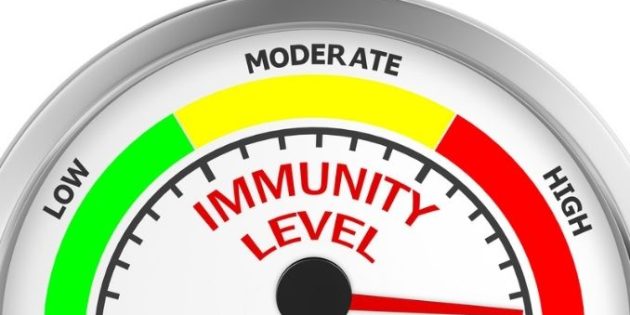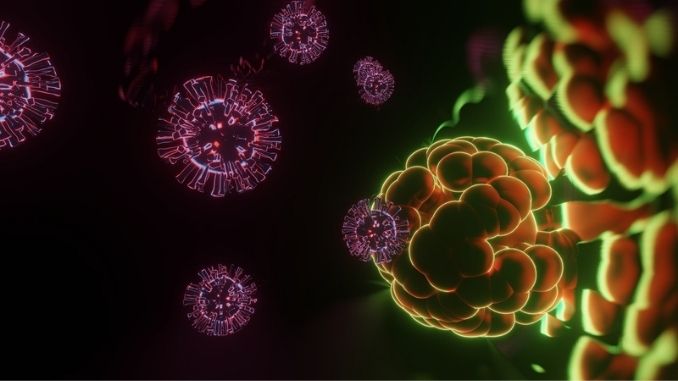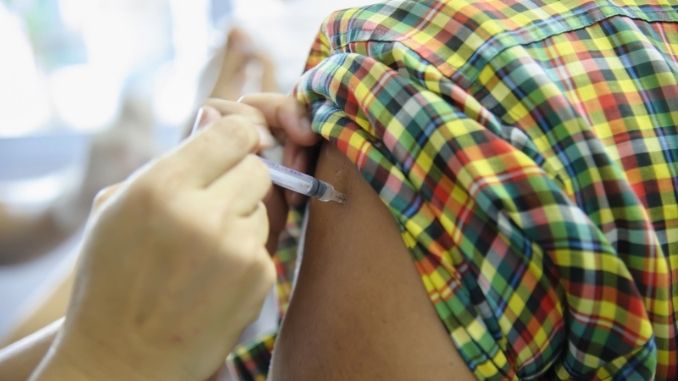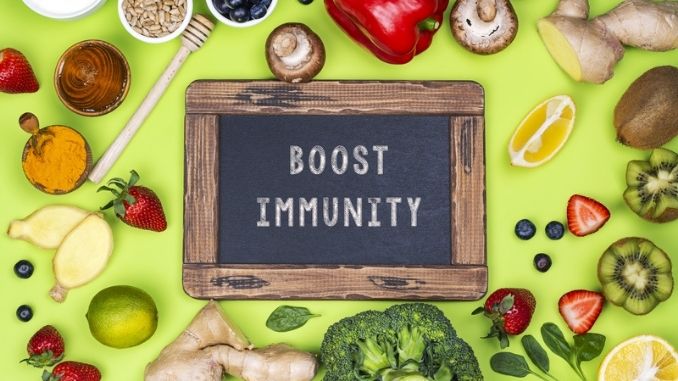The term ‘Immunity’ is derived from the Latin word immunitas, meaning exemption from tax payments, military service, or other public services. However, in 1882 the scientist, Ilya Mechnikov, developed a full theory of immunity. The Germ Theory of Disease by Louis Pasteur helped in the fledging science of immunology. It began to explain how bacteria cause disease, and how, following infection, the human body gains the ability to resist further infections.
Medically, Immunity is the immune system’s way of protecting our body from invading pathogenic microorganisms. When the body senses foreign substances (called antigens), the immune system works to recognize the antigens and get rid of them. It identifies and fights the invasion of bacteria, viruses, parasites, and more.
Immune systems may vary from person to person, but generally, your immune system is stronger as an adult compared to when you were a child. This is because you developed increased immunity as you were exposed to different pathogens throughout your life. When a pathogen enters your body, your immune system mounts an immune response. It then develops an antibody, a copy of which remains in your body. When that pathogen appears again, your body can deal with it much faster.
Parts of the Immune System:
To protect your body, several cells and organs work together. White blood cells or Leukocytes play a vital role in your immune system.
White Blood Cells: Absorb and chew up the pathogens. These include phagocytes, neutrophils, monocytes, macrophages, and mast cells.
Lymphocytes: Find the invaders and send defenses to destroy them. They then remember the invaders and attack them again when they come back. These include:
- B Lymphocytes: Produce antibodies. They find the targets and alert the T Lymphocytes.
- T Lymphocytes- After they are alerted, they launch an attack and destroy the invaders.
Types of Immunity:
There are three types of immunity in humans: innate, adaptive, and passive.
Innate Immunity
The word itself, innate, means inborn, natural, or determined by factors present in an individual from birth. Innate immunity is a nonspecific defense system with which you are born.
Adaptive Immunity
When you are immunized against a disease or when you are exposed to a disease, you develop adaptive, or active immunity.
An immunization introduces a small amount of specially treated and weakened antigens to a person. It is enough to trigger the production of antibodies without making the person ill. The body then makes a copy of the antibodies so that your body now knows how to fight that pathogen.
Passive Immunity
Also known as ‘borrowed immunity’, passive immunity does not last a lifetime. The best example of passive immunity is the antibodies received by a baby from its mother. It is transferred through the placenta before birth and via breast milk after birth and protects the baby temporarily during the early years.
Ways to Boost Your Immune System:
You should not underestimate how powerful your body is. Your immune system is a ‘system’ and not a single entity. Many factors may affect your immune systems, such as age, diet, exercise, psychological stress, and sleep. This means that your primary line of defense should be a healthy lifestyle. This can help strengthen your immune system and prevent illness.
Just like the rest of your body, your immune system needs nourishment, rest, and a healthy environment to stay strong. Certain lifestyle changes can boost your immune system and help you avoid illness.
To keep your immune system running smoothly, you should:
- Avoid or limit your alcohol intake and quit smoking. Some believe that alcohol does not affect the immune system, however, it does release toxins that may compromise your immunity. Quitting smoking will give your immune system a boost by increasing circulation, decreasing inflammation, and increasing oxygen levels, making fighting off illness easier.
- Get a good night’s sleep. Getting enough sleep helps enhance the function of T cells. You should aim for at least 7-8 hours of sleep each night.
- Get Moving. Regular exercise strengthens the lungs, increases oxygen absorption, and improves circulation.
- Get your daily dose of Vitamin D. Try to get at least 15 to 30 minutes of sun exposure to increase your Vitamin D.
- Wash your hands often. Nothing beats clean hands to prevent the transfer of disease.
- Decrease stress and focus on mind/body wellness. When you are stressed, your immune system’s ability to fight off invaders decreases, making you more susceptible to infection. Consider different ways to cope with stress, including meditation, exercise, good nutrition, and asking for help if needed. Take time for yourself regularly. Do something you love, such as cooking, dancing, singing, reading, or spending time with others.
- Make sure your vaccinations are current. Learn which vaccines are recommended for your family and stay up to date on immune-boosting foods.
- Start by choosing whole foods and decreasing your intake of processed foods.
Foods known to help boost immunity include:
- Garlic
- Yogurt
- Blueberries and red grapes
- Honey
- Shellfish
- Oats
- Mushrooms
- Chicken soup
- Red bell peppers
- Immune boosting tea
Consider supplements. People with a vitamin D deficiency are more susceptible to infection, so taking a daily supplement can help. Zinc is also necessary for a healthy immune system. Of course, vitamin C is also linked to a healthy immune system. Do note, if you are taking other medications, consult with your doctor before taking supplements.
These tips may help boost your immune system, but you still need to listen to your body and pay attention to how you react to different lifestyle changes. For example, if you find yourself getting a cold any time you are stressed, it might be more important for you to remember to sit back and relax. Others might feel under the weather after consistently getting poor sleep. Most importantly, if you find that you are frequently getting sick, consult with your doctor.
Click here to learn more about the best, natural system for improving your immune system.










